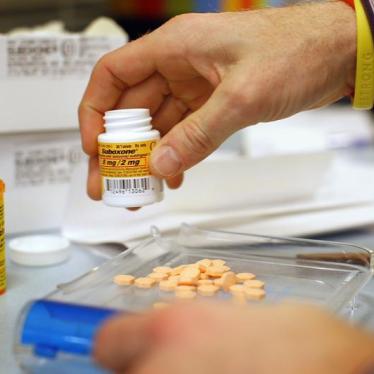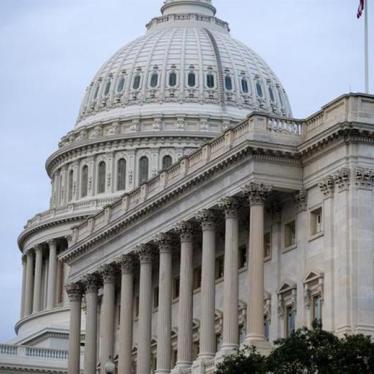Senate Majority Leader Chuck Schumer
322 Hart Senate Office Building
Washington, DC 20510
Senate Minority Leader Mitch McConnell
317 Russell Senate Office Building
Washington, DC 20510
Cc: Senate Judiciary Committee Chair Dick Durbin and Ranking Member Lindsey Graham
RE: Cosponsor the Temporary Emergency Scheduling and Testing of Fentanyl Analogues Act of 2023 (TEST Act)
Dear Senate Majority Leader Schumer, Senate Minority Leader McConnell, Chairman Durbin, Ranking Member Graham, and Honorable Members of the U.S. Senate:
We, the undersigned health policy, drug policy, criminal justice reform, civil and human rights, and advocacy organizations, write today to urge you to cosponsor and support swift passage of the Temporary Emergency Scheduling and Testing of Fentanyl Analogues Act of 2023 (TEST Act). This bill would allow the Drug Enforcement Administration (DEA) to place new fentanyl-related substances (FRS) in Schedule I for up to four years, during which time the Department of Justice (DOJ) and Health and Human Services (HHS) would have to conduct a scientific and medical evaluation of each substance and publicly report the findings.
As you know, Congress has preemptively placed all FRS on Schedule I of the Controlled Substances Act (CSA) as a class – even those that do not exist. Congress has considered circumventing the scientific research requirements under current law by passing bills such as the HALT Fentanyl Act (H.R. 467), which would automatically designate any FRS as dangerous without studying a substance at all. Temporary scheduling authority is intended to allow the DOJ the time to conduct the scientific and medical evaluations it is required to by law. By allowing DOJ to designate the entire class of FRS as Schedule I without conducting scientific and medical research, Congress may inadvertently leave undiscovered therapeutic medications similar to naloxone and other life-saving medications at a time when the U.S. is facing record numbers of overdose deaths. Schedule I is reserved for the most harmful drugs with no medical use, carrying the harshest criminal penalties and barriers to scientific research. We believe Congress should pass the TEST Act, which would create a statutory period of up to four years for the DOJ to conduct the scientific and medical evaluation of a substance, facilitate the research of FRS, and ensure that substances are placed on the drug schedule according to their scientific profile and potential for abuse.
Permanent classification of FRS on Schedule I, without first studying the pharmacological effects and epidemiological data of the individual substances, would set an alarming precedent in U.S. drug scheduling. Since 1970, the federal government has conducted a scientific evaluation of all controlled substances in order to understand if or where on the drug schedule a particular substance should be classified.[1] In order for a substance to be placed on Schedule I, the DEA must determine it has potential for abuse and no approved medical use.[2] Further, the Attorney General must request a scheduling recommendation from the Secretary of HHS based on an eight-factor medical and scientific analysis.[3]
Yet, some are advocating for the federal government to break this precedent and make permanent the classwide scheduling of FRS on Schedule I without conducting individual testing of each uniquely identified chemical compound or novel substance, despite acknowledging that not all substances are similar and harmful. According to the DEA, it had identified 36 FRS as of December 2022.[4] Of those, 24 had been studied and 10 were currently being studied. The DEA has publicly stated that at least one substance studied had no pharmacological effect and could even be a life-saving treatment like naloxone.[5] Despite these findings, the DEA has not made public the scientific and medical evaluations of these substances nor has it completed testing of the rest of the group.
Moreover, HHS has previously undertaken a review of the FRS class, but it could not provide findings because of the vast number of hypothetical FRS and more importantly, because it had identified examples of substances in the class that acted as opioid antagonists, which are used to treat opioid dependence.[6] In fact, HHS has said research with FRS and other synthetic opioids “may be important to the development of new and improved treatments for opioid addiction and overdose, chronic pain, and other neurologic and psychiatric conditions, as well as to understanding the effects these substances have on human health.”[7] The indiscriminate placement of all FRS on Schedule I means that people will be deterred from researching FRS and/or may potentially be incarcerated for activities related to benign or even beneficial substances.
The criminal legal impact of permanent FRS scheduling will be severe. Permanent FRS scheduling would entrench mandatory minimum sentences for distribution and importation of FRS—imposing harsh fentanyl-analogue mandatory minimums (mandatory minimums that are four times harsher than the mandatory minimums applicable to fentanyl itself) on thousands of substances based on molecular structure alone. Many current permanent FRS scheduling proposals, including the HALT Fentanyl Act, would also expand mandatory minimums beyond where they have ever (even temporarily) been before, creating new mandatory minimums for trafficking in listed fentanyl analogues. Permanently entrenching mandatory minimums for FRS would represent an unprecedented application of mandatory minimum sentences to substances without regard to their pharmacological effect. The impact would be particularly harmful in light of 1) the dramatic recent increase in fentanyl-analogue prosecutions and 2) the racial justice dimension of such prosecutions, with well over half of all fentanyl-analogue prosecutions targeting Black people, and over 75% targeting Black and Hispanic individuals. This is an unnecessary risk because the DOJ currently has – and exercises – the power to prosecute illicit fentanyl analogues under federal law.
This will lead to devastating and consequential outcomes for our communities.
To address these problems, the TEST Act will:
- Extend the temporary emergency scheduling of FRS for up to 4 years for new fentanyl analogues to allow time for testing of FRS;
- Amend the CSA so that FRS can more quickly be evaluated and properly scheduled according to pharmacological effect, including by narrowing the HHS evaluation factors from eight to four;
- Establish a pathway for the Attorney General to delist FRS that do not have potential for abuse by removing them from Schedule I, a provision that is based on the Biden-Harris Administration’s 2021 Recommendations to Congress; [8]
- Establish a pathway for the Attorney General to place into a lower schedule any FRS that has a potential for abuse that is less than the drugs or other substances in schedules I and II, a provision that is based on the Biden-Harris Administration’s 2021 Recommendations to Congress;
- Require the publication of scientific and medical evaluations and recommendations for those FRS that have already been tested;
- Expand the pool of researchers allowed to study FRS for medical or therapeutic uses and to make science-based scheduling recommendations by creating a new, alternative registration process for schedule I research, provisions based on the Biden-Harris Administration’s 2021 Recommendations to Congress; and
- Authorize appropriations to the Secretary of HHS to conduct testing.
Approximately 285 people die of a preventable overdose each day in the United States.[9] Rather than restricting research, the federal government must support the study and development of new tools and the provision of health services to save lives. This includes studying FRS for potential treatment options and ensuring people can receive the best treatments imaginable. Ensuring that federal agencies and the research community can study emerging substances for potential therapeutic value, including FRS, is a critically important component of these efforts. It can also help ensure that people are not unjustly incarcerated for crimes that were never committed.
We urge you to cosponsor the TEST Act and support its swift passage this Congress before the temporary classwide scheduling policy of FRS expires on December 31, 2024. For questions about anything in this letter, please contact Maritza Perez Medina, Director of Federal Affairs at the Drug Policy Alliance, at mperez@drugpolicy.org, and Mazen Saleh, MSc, Policy Director of Integrated Harm Reduction at R Street Institute, at msaleh@rstreet.org.
Sincerely,
A New PATH (Parents for Addiction Treatment & Healing)
Academy of Perinatal Harm Reduction (OR)
Action Lab at Center for Health Policy and Law, Northeastern University (MA)
AIDS Alabama (AL)
AIDS United
American Civil Liberties Union
AMERSA, Inc
CAN-DO Foundation
Center for Law and Social Policy (CLASP)
Clergy for a New Drug Policy
COYOTE RI (RI)
CURE (Citizens United for Rehabilitation of Errants)
Dream.org
Drug Policy Alliance
Due Process Institute
Elephant Circle
End It For Good (MS)
FAMM
Federal Public and Community Defenders
Forward Justice Maryland (MD)
Georgia Harm Reduction Coalition (GA)
GLMA: Health Professionals Advancing LGBTQ+ Equality
Human Rights Watch
Illinois Harm Reduction & Recovery Coalition (IL)
LatinoJustice PRLDEF
Law Enforcement Action Partnership
The Leadership Conference on Civil and Human Rights
Los Angeles Community Action Network (CA)
More Than Our Crimes
Movement for Black Lives
NASTAD
National Association of Criminal Defense Lawyers (DC)
National Council of Churches
National Council on Alcoholism and Drug Dependence-Maryland Chapter (MD)
National Harm Reduction Coalition
National Health Care for the Homeless Council
National Health Law Program
NETWORK Lobby for Catholic Social Justice
NMAC
OpioidSettlementTracker.com (WA)
Prison Policy Initiative
R Street Institute
Reproductive Justice Inside
StoptheDrugWar.org (DC)
Susan Mason Consulting (MD)
Texas Organizing Project (TX)
The National Council for Incarcerated and Formerly Incarcerated Women and Girls
The Porchlight Collective SAP (IL)
The Sentencing Project
Vera Institute of Justice
Veterans Cannabis Coalition
Washington Office on Latin America (WOLA)
[1] Drugs of Abuse, A DEA Resource Guide (2020 Edition), Drug Enforcement Administration, U.S. Department of Justice (2020), https://www.dea.gov/sites/default/files/2020-04/Drugs%20of%20Abuse%202020-Web%20Version-508%20compliant-4-24-20_0.pdf.
[2] Drug Enforcement Administration, U.S. Department of Justice (2020), https://www.dea.gov/sites/default/files/2020-04/Drugs%20of%20Abuse%202020-Web%20Version-508%20compliant-4-24-20_0.pdf.
[3] 21 U.S.C. § 811(b)
[4] Letter from Drug Enforcement Administration to Senator Cory A. Booker, Dec. 2022.
[5] Statement of Douglas G. Throckmorton, M.D., Dep. Dir. for Regulatory Programs, Center for Drug Evaluation and Research, U.S. FDA, The Overdose Crisis: Interagency Proposal to Combat Illicit Fentanyl-Related Substances: Hearing Before the Subcomm. on Health of the H. Comm. on Energy and Commerce, 117th Cong. at 40 (Dec. 2, 2021), https://docs.house.gov/meetings/IF/IF14/20211202/114265/HHRG-117-IF14-Transcript-20211202.pdf.
[6] Testimony of Sandra D. Comer, Ph.D., Pub. Policy Officer, Coll. on Problems & Drug Dependence, Before the Subcomm. on Crime, Terrorism & Homeland Sec., H. Comm. on the Judiciary at 3 (Jan. 28, 2020), https://docs.house.gov/meetings/JU/JU08/20200128/110392/HHRG-116-JU08-Wstate-ComerS-20200128.pdf.
[7] Dep’t of Health and Human Services, Letter to Senator Richard Durbin in Response to July 10, 2019 Letter, Oct.31, 2019.
[8] Biden-Harris Administration Provides Recommendations to Congress on Reducing Illicit Fentanyl-Related Substances, The White House (Sept. 2, 2021), https://www.whitehouse.gov/ondcp/briefing-room/2021/09/02/biden-harris-administration-provides-recommendations-to-congress-on-reducing-illicit-fentanyl-related-substances/
[9] Centers for Disease Control and Prevention (CDC), National Center for Health Statistics, National Vital Statistics System, (2023), https://www.cdc.gov/nchs/nvss/vsrr/drug-overdose-data.htm.








